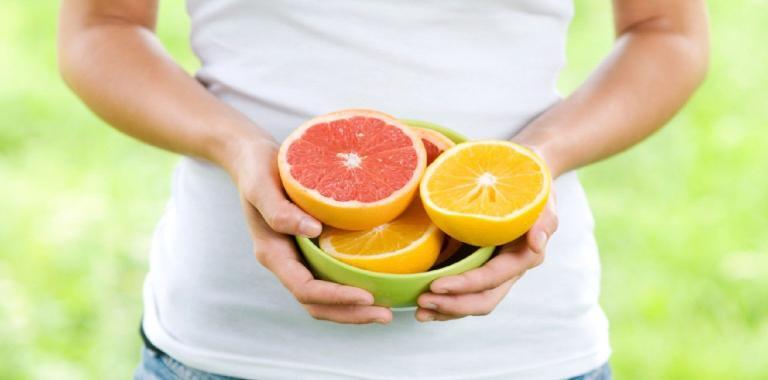When you hear the words ‘prenatal vitamins’, you’d be forgiven for thinking that these are vitamins you start taking after a positive pregnancy test. However, there are many advantages to starting to take vitamins earlier.
Ideally, you should start taking prenatal vitamins as soon as you start thinking that you want to try to conceive. Many people don’t realise they’re pregnant until they’re well into their first trimester. By then, much of the development of the foetus has already taken place. If you start taking daily prenatal vitamins before pregnancy, you can put in place this nutritional safety net, which will give you and your unborn baby the best chance of enjoying the maximum benefits. Of course, life is unpredictable and surprises do happen. If you find yourself pregnant before you’ve started taking prenatal vitamins, simply start taking prenatal vitamins as soon as possible.
Plusbaby has created the +ferti range of vitamins which we advise you to start taking as soon as possible to maximise your chances of getting pregnant. It contains all the nutrients you need for the first trimester of pregnancy.
Once your pregnancy is confirmed, we advise you to take our +mum vitamins, which are specially designed for use during pregnancy and breastfeeding.
What should you look for in prenatal vitamins?
Now let’s get down to the details: what exactly does a quality vitamin contain, and in which foods can these nutrients be found naturally ? Here are the main elements:
Folate : This is the one you’ve probably heard the most about. Folate is a B vitamin (B9) that offers important protection against neural tube defects. Neural tube defects are abnormalities in the development of the brain and spinal cord, in particular spina bifida and anencephaly. There are several types of folate present in foods, but the two most common in food supplements are folic acid and 5-MTHF, abbreviated to folate MTHF. We’ll look at the difference between MTHF folate supplements and folic acid later, but make sure the prenatal product you choose contains at least one. Folate can also be found in green leafy vegetables, lentils, beans and pulses.
Iron: your body uses iron to make haemoglobin, the protein that red blood cells use to carry oxygen. In your lungs, haemoglobin binds oxygen and transports it to all the tissues in your body, including the developing embryo via the placenta. The total amount of blood in a woman’s body will increase by 50% during pregnancy, which means a high demand for iron. If you feel more tired than usual, it may be because you are suffering from an iron deficiency, also known as anaemia. During pregnancy, doctors systematically test for anaemia by means of a simple blood test. Iron is found in greater quantities in red meat (haem iron), but it is also naturally present in plant sources such as green leafy vegetables, beans and dried fruit (non-haem iron). Non-heme iron is best absorbed when taken with a source of vitamin C, such as citrus fruit.
Calcium: This is the mineral used to build your bones and teeth, as well as those of your baby. Dairy products and green leafy vegetables are all good food sources of calcium.
Vitamin D: Many nutrients depend on each other to function or be absorbed. This is the case with vitamin D and calcium: you can take as much calcium as you like, but your body won’t be able to absorb it properly without vitamin D. Oily fish (such as salmon) and vitamin D-enriched dairy products are good sources. You can also obtain vitamin D by spending time in the sun. Excessive exposure to the sun – especially without protection from sun cream or clothing – can lead to skin cancer. If you want to sunbathe or go for a walk in the name of vitamin D, do so in moderation.
DHA: Docosahexaenoic acid, an omega-3 fatty acid that promotes the development of the foetus’ brain and eyes. It is an integral part of neuronal cell membranes and its intake is linked to the timely achievement of key developmental milestones and problem-solving abilities in infants. It is found in fish with a low mercury content and in orange juice, milk and eggs enriched with DHA.
Iodine: This mineral contributes to the healthy development of your baby’s organs and nervous system. It is found in iodised salt (generally labelled as such) as well as in dairy products and fish.
Why take these vitamins?
You may have noticed that all these vitamins and minerals are, to a certain extent, found in food, so why do you need to take a prenatal vitamin on top of all that? For one thing, you need to consume higher amounts of these vitamins than a non-pregnant person, and between pregnancy nausea and the odd craving, it can be difficult to meet these nutritional ideals from food alone.
Growing babies or foetuses are good at getting what they need from their mothers, and while this is great for their well-being, it can have unexpected consequences for you. For example, if your diet is low in calcium, your baby will get the calcium it needs for its growing skeleton from your own bones. So the benefits of taking vitamins and nutrient-rich food sources are not just for your unborn baby, they’re for you too.
Should you choose MTHF folate or folic acid?
Having said that, there is another choice to consider, namely the choice between MTHF folate and folic acid. Folic acid is the synthetic form of folate used to prevent neural tube defects such as spina bifida. Although vitamins containing folic acid are preferable to no vitamin at all, we encourage you to choose vitamins containing MTHF folate.
MTHF folate is preferable because it has a higher bioavailability, which means that your body can use MTHF folate directly in its native or natural form. Folic acid must be metabolised twice before it is converted into a form your body can use. Up to 25% of the population is severely impaired in its ability to convert folic acid into its active form and is at increased risk of neural tube defects. Research is still preliminary, but these people could benefit from supplementation with MTHF folate rather than folic acid. To find out more about MTHF folate versus folic acid, see our article on the subject.
What are the side effects of vitamins?
You may have heard of – or know about – some of the unpleasant side effects that some women experience when taking vitamins. We’re sorry to tell you that the most common side-effects are those you already experience during pregnancy, namely nausea and constipation:
For nausea, taking your vitamin in the evening before bed, or with food, may provide some relief.
Drinking more water and eating a diet rich in soluble fibre can sometimes relieve constipation.
In any case, if you are suffering from unpleasant symptoms, don’t forget to tell your doctor or midwife at your next check-up.
Points to remember about vitamins
We know these decisions can seem stressful and important, and they are: we’re talking about your baby’s development, and it’s normal to want to cover all the bases and do everything you can. It’s a way of feeling more in control at an unpredictable and sometimes scary time in your life. But we encourage you to think of your vitamins as a way of giving yourself a break. If, for whatever reason, you are unable to follow the dietary recommendations for pregnancy to the letter, you can remember that the vitamins you choose provide you with nutritional support. They are a support system and an investment in your baby’s health and well-being, as well as your own. For all the stress that may seem inevitable during pregnancy, prenatal vitamins can ultimately be a source of relief.
Our vitamins for fertility and pregnancy
We have developed and designed a range of products that follow all our recommendations below and ensure the highest possible quality of all our nutrients.
Plusbaby has created the +ferti range with +fertiwomen and +fertimen which we advise you to start as soon as possible to maximise your chances of getting pregnant. It contains all the nutrients you need for the first trimester of pregnancy.
Once your pregnancy is confirmed, we advise you to take +mum, our vitamins specially designed for pregnancy and breastfeeding.






